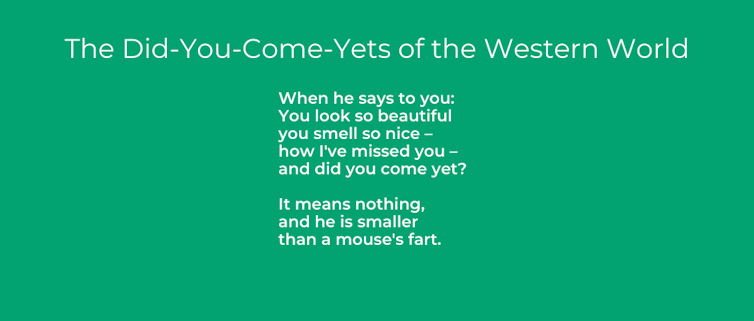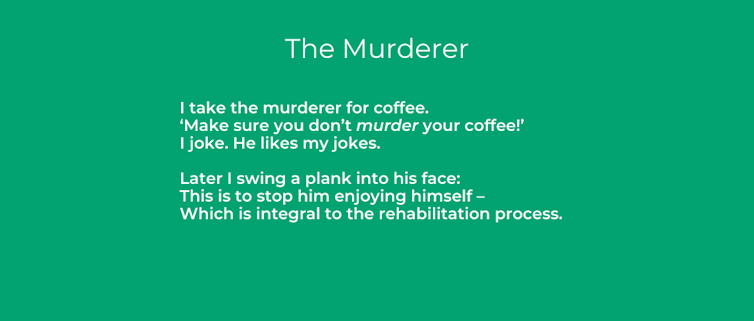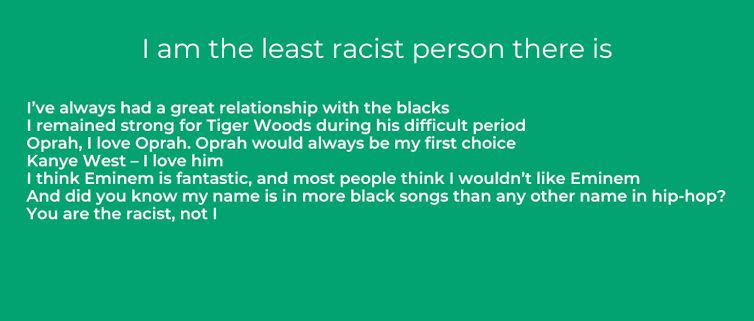 © Peggy_Marco/Pixabay
© Peggy_Marco/Pixabay Humour in poetry should be taken seriously
Says creative writing lecturer Christina Thatcher
As a child, I remember laughing out loud while reading Shel Silverstein’s poetry book A Light in the Attic (1981). I loved it so much that I started reciting the poem Skin Stealer every day, to the great annoyance of my little brother. Even now, these lines still come knocking:
This evening I unzipped my skin
And carefully unscrewed my head,
Exactly as I always do
When I prepare myself for bed.
As a teenager, I was taught that poetry should be more serious. It was art – and art took itself seriously. Even now, poems designed to make us laugh are often dismissed as frivolous. This seems strange given that many of our earliest poems are comic ones. The limerick, for instance, is thought to have originated during the Middle Ages and has been used to great humorous effect by thousands, from Shakespeare to Roald Dahl.
Perhaps the crime here isn’t that funny poems have been sidelined in favour of serious ones, but that funny poems are not also considered to be serious. Humour, after all, has the power to disarm us and promote reflective thinking.
Although there are innumerable ways in which poets can be funny in their work, I have chosen pieces here which employ three different types of humour to demonstrate how poetry can make us both laugh and think.
Sexy humour
Sometimes called dirty, naughty, rude or cheeky, this type of humour works because it violates social norms. After all, it is not polite to talk about sex. But, poetry which pokes fun at bodies and desire is centuries old.
Poems in this category can range from titillating to obscene. But, beyond the tee-hees, these pieces can reveal deeper truths about sex and relationships. Take a look at the opening of The Did-You-Come-Yets of the Western World by Rita Ann Higgins:

Absurdist humour
Poets who use absurdity in their work tend to operate under the assumption that implausibility is essential to comedy. Absurd humour highlights the ridiculousness of life, pushing normally accepted realities to extremes to give the audience a fresh perspective. This can be seen in Luke Kennard’s darkly funny poem The Murderer, which opens:

In his correspondence with writer Paul McDonald, Kennard discussed how this poem works to reveal the shortcomings of both characters, opening up a chance for readers to reflect on moral relativism.
Satirical humour
Satire is an excellent way for poets to respond to social trends and current events. Often, this type of humour relies on ridicule and exaggeration to expose and criticise people’s stupidity or vices. Satirical poems play an important role when it comes to challenging political, cultural and aesthetic oppression. According to the poet Matthew Rohrer, satire is a tool by which the oppressed get to make fun of their oppressors.
Satirical poetry takes many forms but one of my personal favourites is the cento – a patchwork poem made up of words or phrases directly from the person at the butt of the joke. Rob Sears’ The Beautiful Poetry of Donald Trump does this brilliantly, particularly this piece:

There are, of course, huge swathes of humour that I haven’t even touched on here. For instance, surrealism, dark humour and observational humour can provoke important discussions, launch taboos into the light and straddle the fine line between "haha" and "oh no".
Because humour is also highly personal, you may not find any of the poems I’ve chosen to be funny. To remedy this, I also asked poets on Twitter to share the pieces which made them laugh and, wow, did they deliver. In this thread alone, the power of humour in poetry is self-evident.![]()
• Christina Thatcher is a creative writing lecturer at Cardiff Metropolitan University. This article is republished from The Conversation under a Creative Commons licence. Read the original article.
Published: 10 Feb 2021






